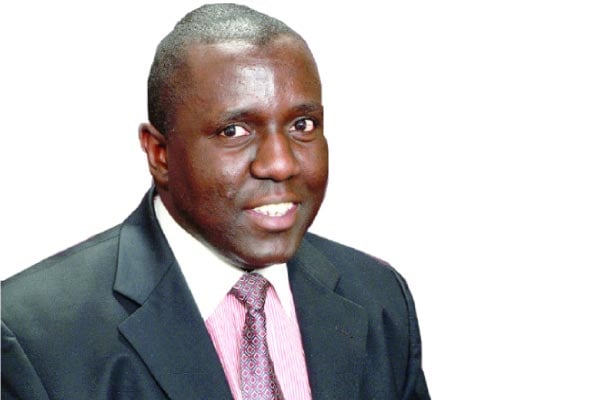Prime
Why Africa is harvesting more coups

Author: Karoli Ssemogerere. PHOTO/FILE
What you need to know:
- The coup d’etat is just the big item on the political menu, others are being offered to serve up the fear of political instability and the great hope for the African renaissance.”
The list of military putsches is growing. Zimbabwe, Mali, Burkina Faso, Sudan, Guinea, Niger and Gabon. In Chad, the army took over after President Idriss Deby was killed on the battlefield while visiting troops in the north.
The formation of the African Union in 2003, replacing the Organisation of African Unity, founded in 1963 was prefaced with vows to improve democratic governance, vilify, suspend countries where coups occurred from its membership. The evidence was there for everyone to see. In the 1990s, the democratic wave had swept away Africa’s founding fathers from power forever and the vestiges of the one-party state apparatus that held them together.
The West, rallied to the cause, in a brief era where the world seemed to have shifted to its cause, China was yet to be felt on the global scene and a resurgent Russia was just warming up to overrun her neighbours. In 2008, the Paris Club wrote off Africa’s debt in a time when many countries were in financial turmoil, facing inflationary pressures, collapsing production and domestic political unrest.
Many countries quickly adopted the Western constitutional menu, return to multiparty rule, two term presidential limit, a vibrant civil society. The rebels trooped into the capitals, running for office, UNITA in Angola, RENAMO in Mozambique.
In the last 10 years, this optimism has begun to sour. First in West Africa, tottering economies have fostered armed conflicts, in Liberia, Ivory Coast, Burkina Faso, Guinea, even tiny Guinea Bissau. Most of the Central Africa is in a continuous theatre of armed conflict, whether its Boko Haram in Nigeria, armed insurgency in Anglo-Cameroon, Central African Republic, the Democratic Republic of Congo, South Sudan.
In Sudan, the long reign of Omar Bashir itself ended in a coup in 2019, while Ethiopia’s experiment with democratic federalism is hanging threadbare after Tigrayan rebels out of office sought to claw back their lost political power.
The African century has had other fragile moments as Africa’s two largest economies, South Africa and Nigeria each cast a shadow on the continent. Their economies have vastly underperformed. Nigerian young professionals continue to flee to the West. Interesting when war broke out in Ukraine, the biggest number of foreign students in Ukraine were from Nigeria.
Uganda has not lost out on this Nigerian agility. Ethiopian Airlines’ biggest customer are Nigerian nationals checking on the homeland. Big numbers of foreign students in Kampala’s south end, the bright coloured concentration of middle tier universities doting Kansanga, Ggaba, Buziga are West African. They are closely followed by Eritreans another country where strong arm rule has been in place since 1993 when Eritrea won independence from Ethiopia.
The recent coup in Gabon highlighted another detail. It punctuated a presidential dynasty, the Bongo’s had been in power since 1967, and in 2010, the older Bongo died, handing over to his son, Ali Bongo. Presidential successions have already happened in Togo, where Gnassingbe Eyadema was succeeded by his son, Faure Eyadema in 2005. Thabo Mbeki in South Africa, not quite, he succeeded Nelson Mandela who in turn had succeeded Govan Mbeki as president of ANC.
Similarly, it took two presidential successions in Kenya, Moi and Kibaki for Uhuru Kenyatta to ascend to power in 2013. This patriarchy is not an African thing, only that in the context of Africa, it is an excess found in the extreme. In Equatorial Guinea, the vice president is the son of the sitting president. Fresh from a contested presidential election, Emmerson Mganagwa appointed his son and nephew to his cabinet, the son as deputy minister of finance and the nephew as deputy minister of tourism.
It could be said, this was a very mild lunch compared to other players. The coup d’etat is just the big item on the political menu, others are being offered to serve up the fear of political instability and the great hope for the African renaissance.
Mr Ssemogerere is an Attorney-At-Law and an Advocate. [email protected]




